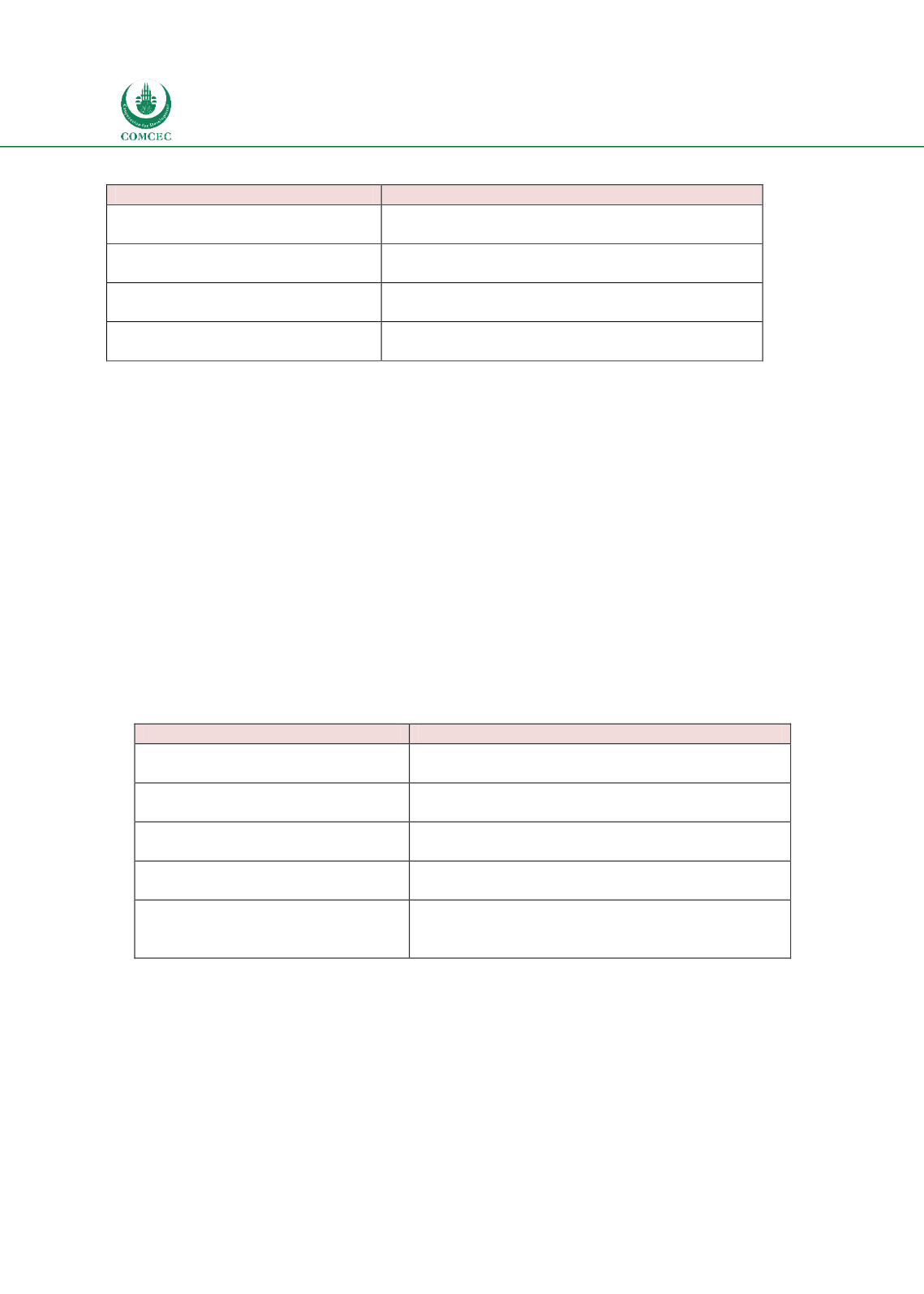

National and Global Islamic Financial Architecture:
Problems and Possible Solutions for the OIC Member Countries
196
Table
6.7: Status of Liquidity Infrastructure
Liquidity Infrastructure
Countries
Government sponsored liquidity
instruments
Bangladesh, Indonesia, Malaysia, Nigeria, Oman,
Pakistan, Saudi Arabia, Sudan, Turkey, UAE
Islamic money market
Bangladesh, Indonesia, Malaysia, Oman, Pakistan,
Sudan
Lender of the last resort
Indonesia, Malaysia, Nigeria, Pakistan, Saudi Arabia,
Sudan
No specific elements in liquidity
infrastructure
Egypt, Senegal
In some countries, only part of the liquidity infrastructure element exists. For example, while
in Nigeria only the liquidity instruments and LOLR facilities exist, there is the Islamic money
market that Islamic banks can turn to in case they need to. This may be partly due to the
smaller size of the Islamic financial sector and also the relatively nascent nature of the
industry. Similarly, Islamic banks in Bangladesh and Oman have liquidity instruments and
money market facilities but no Shariah compliant LOLR. While Turkey and UAE have one
Shariah compliant instrument that Islamic banks can use to avail funds from the central bank,
in Egypt, Saudi Arabia and Senegal none of the elements of an Islamic liquidity infrastructure
exist.
6.1.5.
Information Infrastructure
The two key elements of the information infrastructure are the accounting and disclosure
standards used by Islamic financial institutions and the existence of rating agencies that assess
credit ratings and the Shariah compliance of Islamic financial institutions and instruments.
Table
6.8: Status of Information Infrastructure
Information Infrastructure
Countries
Adopted
AAOIFI
accounting
standards
Oman, Sudan
Accommodate Islamic finance in
domestic accounting standards
Bangladesh, Indonesia, Malaysia, Nigeria, Pakistan
Rating agencies assessing Islamic
financial institutions/sukuk
Bangladesh, Indonesia, Malaysia, Sudan, Pakistan
Rating agencies assessing Shariah
compliance
-
No elements of Islamic finance in
domestic accounting standards or
rating agencies
Egypt, Saudi Arabia, Senegal, Turkey, UAE
Only two countries (Oman and Sudan) in the sample require Islamic financial institutions to
use AAOIFI accounting standards. In some countries (Indonesia, Malaysia, Nigeria and
Pakistan), the domestic accounting standards are generally used but are adjusted for Islamic
financial transactions. In Bangladesh, while Islamic banks are required to use domestic
accounting standards, the regulators require some additional disclosure related to Islamic
financial instruments. While ratings agencies in some countries provide credit-ratings of
Islamic financial institutions and securities such as sukuk, none of them rate their Shariah
















